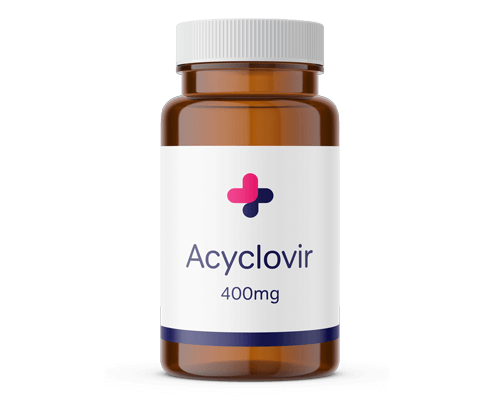What should I tell my doctor before taking Acyclovir?
Do NOT take Acyclovir if you are allergic (hypersensitive) to Acyclovir or similar antiviral medications, such as Valacyclovir. Before taking Acyclovir, tell your doctor and take particular care if:
- You have kidney disease or reduced kidney function
- You have a weakened or compromised immune system due to disease or certain medications
- You are pregnant or breastfeeding. If you might be pregnant, or are planning on becoming pregnant.
Before taking Acyclovir, tell your doctor if you are taking or have recently taken any other medications, including those purchased without a prescription. In particular, tell your doctor if you are taking or have recently taken any of the following:
- Cimetidine and probenecid, which may increase the concentration of Acyclovir
- Mycophenolate mofetil, as blood levels of both drugs can increase if taken in combination
- Ciclosporin, as your doctor may wish to monitor your kidney function
- Theophylline
- Zidovudine
What are the side effects of Acyclovir?
Like all medications, Acyclovir can cause side effects in some patients. If you experience symptoms of a severe allergic reaction, stop taking Acyclovir and seek medical attention immediately. Signs of a severe allergic reaction include swelling of the face, lips, tongue or throat, difficulty breathing or swallowing, and convulsions.
Common side effects of Acyclovir may affect up to 1in 10 people and include:
- Dizziness or headaches
- Nausea or vomiting
- Diarrhea
- Abdominal pain
- Skin rashes and itching
- Tiredness
- Sensitivity to sunlight or to artificial light
- Fever
Uncommon side effects, experienced by less that 1 in 100 people, include pale or red, raised patches on the skin, severe itching or hair loss.
Less than 1 in 1,000 users may experience the following rare side effects:
- Increase in bilirubin and liver related enzymes
- Increase in blood levels of urea and creatinine
- Impaired kidney function which, in rare cases, can lead to kidney failure
- Irregular emergence of circular red patches on the skin of the hands and arms
- Severe skin rash, which may involve reddening, peeling and swelling of the skin resembling severe burns
- Flushing, fever, blisters or ulcers, signs of Stevens Johnson syndrome (Blisters on your skin and the mucous membranes of your mouth, nose, eyes and genitals).
Extremely rare side effects, affecting less than 1 in every 10,000 patients, may include:
- Hepatitis (inflammation of the liver)
- Jaundice (yellowing of the skin and whites of the eyes)
- Anaemia, leucopenia or thrombocytopenia
- Kidney failure. Inform your doctor immediately if you experience increased bruising, nosebleeds, sore throats, infections, excessive tiredness, breathlessness, abnormal paleness of the skin, or lower back pain.
- Nervous system reactions. Inform your doctor immediately if you experience excessive drowsiness, confusion, hallucinations, sleepiness, convulsions (fits), coma, general feeling of discomfort and illness, agitation, involuntary shaking, difficulty controlling movements, or difficulty speaking.
Contraindications
The only contraindication to Acyclovir is if you have an allergy to it, or to any component of its formulation (inactive ingredients).
Drug interactions
The following medications may interact with Acyclovir:
- Cladribine
- Clozapine
- Foscarnet
- Mycophenylate
- Talimogene Laherparepvec
- Tenofovir
- Tizanidine
- Varicella and Zoster Vaccines (do not use Acyclovir within 14 days of vaccination, as it may reduce vaccine efficacy)
- Zidovudine

















Quick and discreet
I ordered Azithromycin tablets for chlamydia treatment, received it next day in a brown discreet pack, and cheaper than all other pharmacies, can't ask for more
Jordan McCann